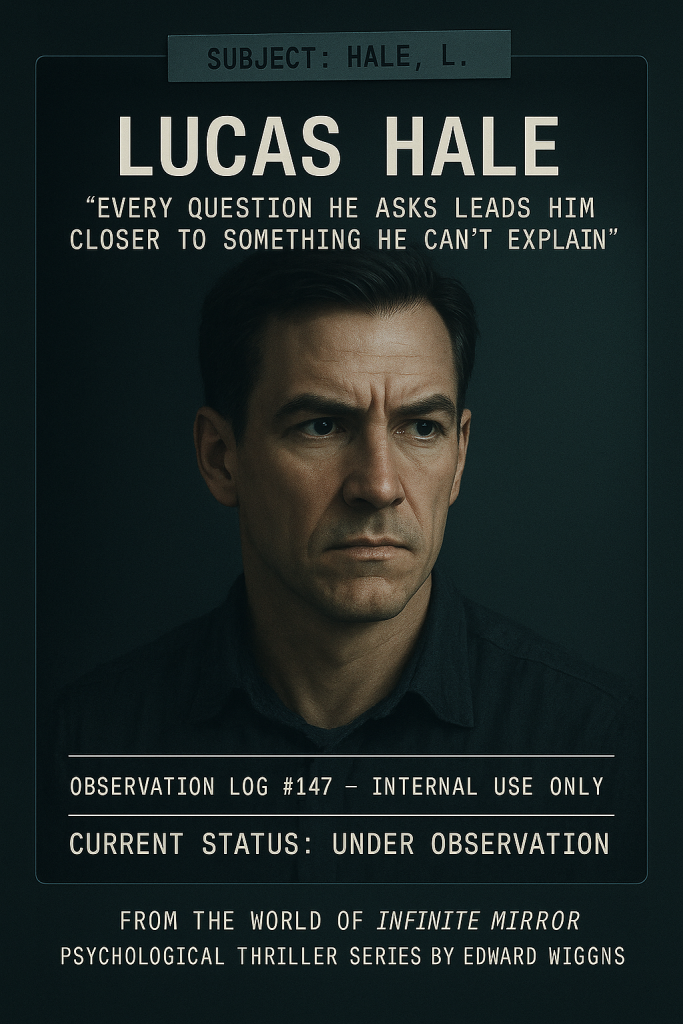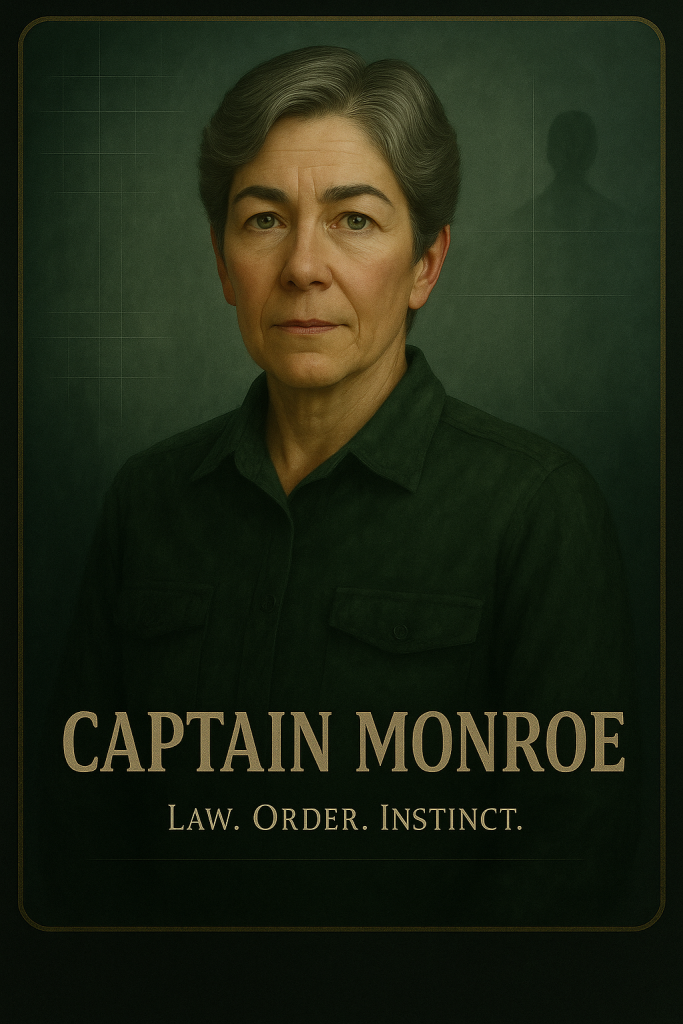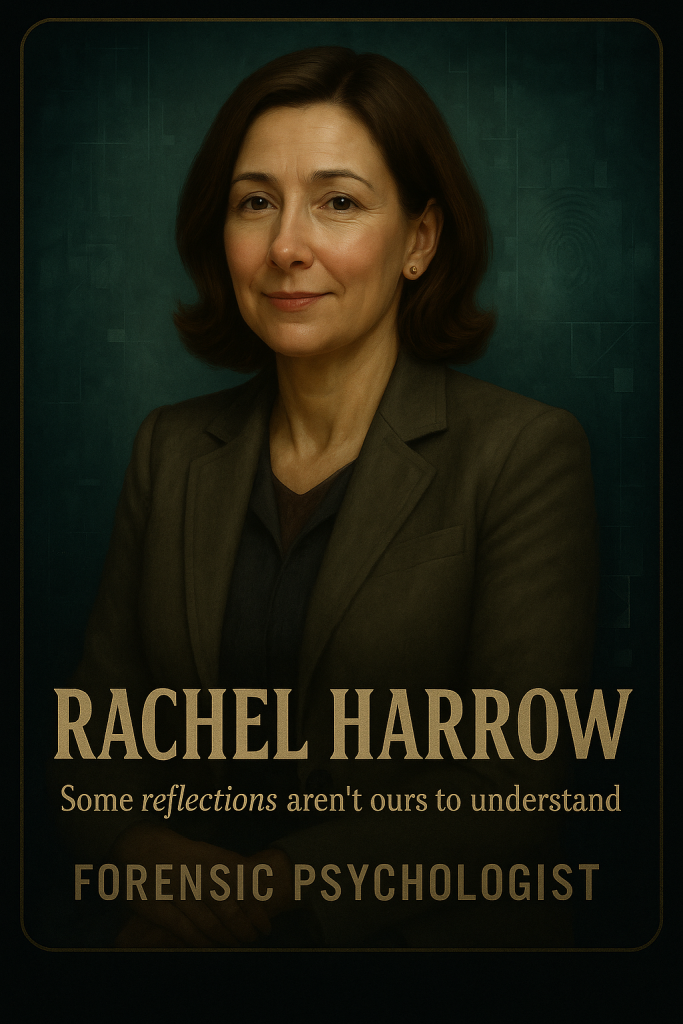Meet the Characters
Lucas Hale
Detective | Protagonist
“Not everything broken knows it’s been shattered.”
Detective Lucas Hale is a methodical and driven investigator with a haunted past he doesn’t fully remember and a future that feels increasingly out of his control. Assigned to some of the city’s most disturbing homicide cases, He has built a reputation for his calm under pressure, intuitive leaps, and quiet intensity. But beneath the surface, cracks are beginning to show.
As the events of Shards unfold, Lucas is drawn deeper into a string of murders that echo far too closely with memories he shouldn’t have—memories that blur the line between reality and identity. At first, he appears as a man holding himself together through sheer force of will. But his struggle is not only external. Inside, there are fractures he cannot explain, gaps in memory, flickers of presence, and moments where he isn’t sure he’s alone in his own mind.
He doesn’t talk about his childhood. Raised in the shadow of a father who never truly came back from military trauma, he’s learned to keep his guard up and his emotions locked down. Yet it’s precisely this emotional detachment that begins to unravel when the murders become more personal, and when a hidden part of himself—dark, calculating, and unfamiliar—starts surfacing.
Complex, resilient, and increasingly conflicted, Lucas stands at the threshold of a psychological mystery that forces him to confront who he really is—and who he might become.


Captain Helena Monroe
Police Captain | Senior Officer
“The badge doesn’t protect you from the truth. Sometimes it’s what gets you closest to it.”
Captain Monroe is the steady hand at the helm of a precinct increasingly slipping into chaos. A veteran officer with a no-nonsense attitude and sharp instincts, Monroe has earned her position not through politics, but by being the kind of leader who understands that truth is rarely clean—and justice even less so.
In Shards, Monroe is both a mentor and a skeptic. She trusts her team, but she’s not blind. She sees things others don’t say, and when Lucas starts to fracture, she notices before anyone else. She doesn’t confront him—not yet. Instead, she quietly enlists Dr. Rachel Harrow to keep an eye on him, trusting intuition over protocol.
What Monroe brings to the story is grounded tension: a moral compass weathered by years in the field, but still intact. She understands how trauma creeps in, how cases bleed into personal lives, and how good people sometimes get lost. But she also knows when something stops making sense—when the patterns change. And in Shards, they do.
Dr. Rachel Harris
Forensic Psychologist | Trauma Specialist
“Not everything broken knows it’s been shattered.”
“We watch patterns. We document silence. But sometimes, silence watches back.”
Dr. Rachel Harrow is a seasoned forensic psychologist with a background in trauma theory and identity research. Calm, clinical, and meticulously observant, she serves as a consultant to law enforcement, often brought in when cases blur the lines between violence and psychological fracture. Beneath her composed demeanour lies a complicated history—and in Shards, that history begins to stir.
Rachel approaches each case with a rigorous intellectual focus, but her growing involvement in Lucas Hale’s investigation brings her dangerously close to personal territory. Though never officially assigned to his case, she begins to monitor him informally—first out of concern, then necessity. What she observes troubles her: subtle shifts in affect, memory dissonance, and language that doesn’t quite belong to him.
As the story unfolds, Rachel must confront her own unease—not only with Lucas’s descent, but with echoes of her past that seem to mirror his. Her instincts tell her something is deeply wrong. Her experience tells her the answers lie deeper than any file or transcript can reach.
With a past tethered to shadowy institutions and a present increasingly drawn into Hale’s unraveling mind, Rachel becomes more than a psychologist. She becomes a witness to something emerging—and perhaps a participant in it, too.

